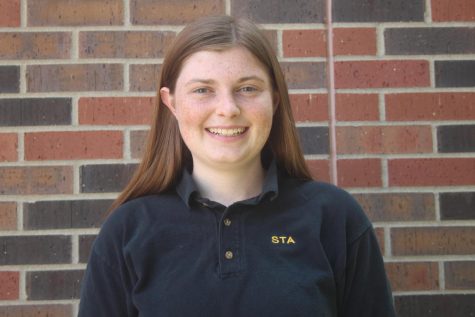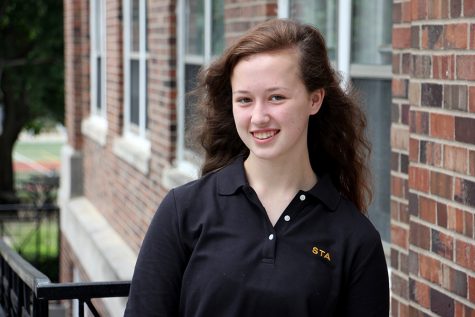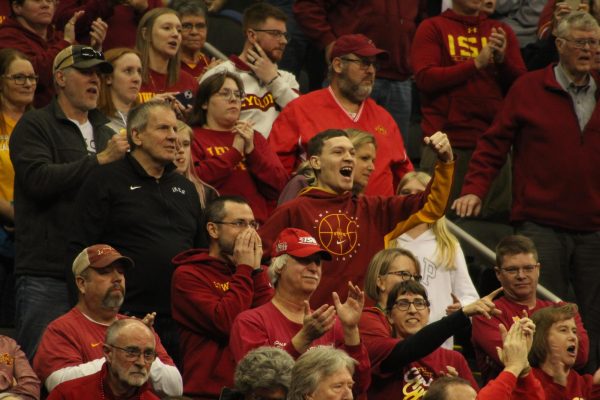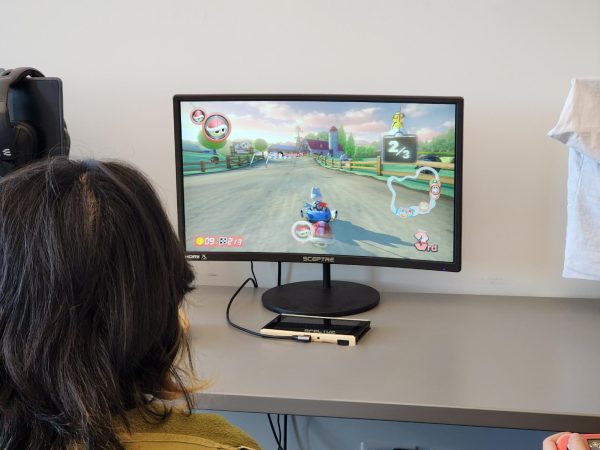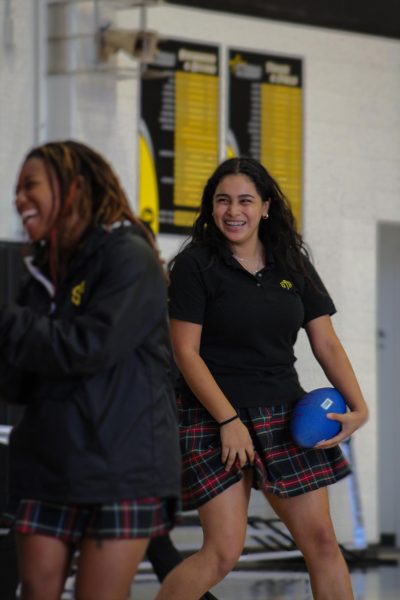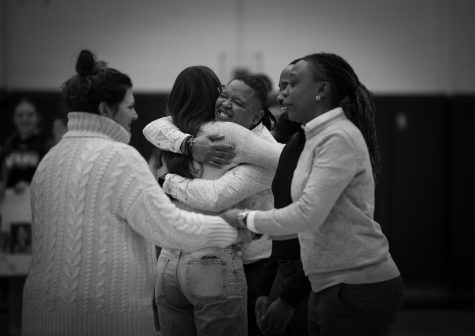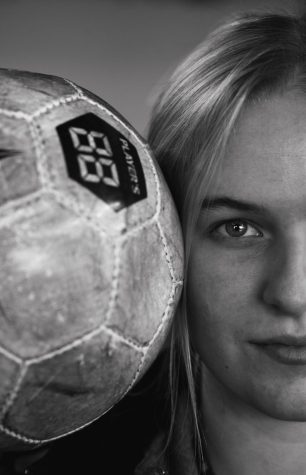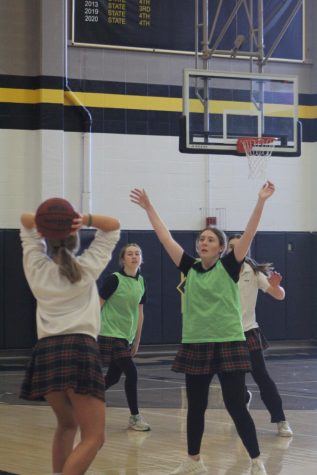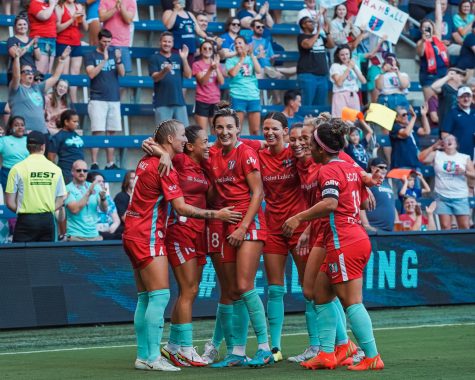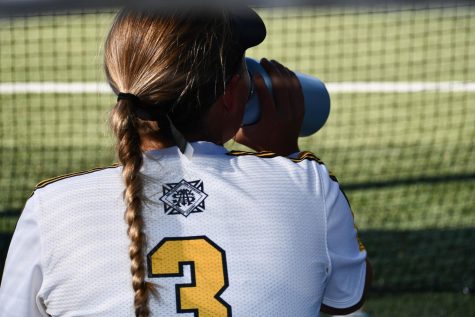Players accomplish dreams to play in college
Athletes commit to the schools of their dreams.
The STA soccer team celebrates their win after the State Semifinals at Swope Park on June 3. The team competed in the State Finals the next day. photo by Margaret Queen
February 4, 2017
story by Annabelle Meloy
As interest from schools around the country has grown, more and more student athletes have been given the chance to play at their highest levels. But schools can scout for the best talent as early as freshman year of high school, which has led some student athletes to commit earlier and earlier.
Schools reach out to all kinds of students, not just athletes, but in order to get a better picture of what the athlete’s talents are, schools may send scouts to come and watch games in person or invite the players to actually come see the facilities.
Senior Gabby Wimes has played varsity volleyball all four years and received interest from multiple schools over the last four years including Hampton University, Arkansas State University, Wheeling Jesuit University and West Virginia University.
“I remember my freshman year, I had an interest from Arkansas State, and that was the first time I really thought about playing in college, and it was really cool,” Wimes said. “It’s something that I didn’t know that I wanted to do at that time, but I thought it was cool to think about someone that wanted me to play for them at their school.”
Student athletes may seem hesitant to commit early for fear of changing their minds, but Wimes believes her decision is exciting and feels right after committing to Southern Illinois University her junior year.
“I had no idea about [Southern Illinois University], but then I went there, and the coaches and everyone were so nice,” Wimes said. “Everything just seemed to fit into place, and you want to go somewhere where you’re going to want it, and you know you’re going to have good opportunities to succeed. [The coaches] already had a layout of what their plan was for me when I came there. It was crazy.”
After being recruited for a school though, the work doesn’t stop there. Like any college team, Wimes knows how aggressive the atmosphere can be.
“I’ve always been on really competitive teams where I’ve had to work for playing time or just getting on the court so that’s something I’m used to, and I’ve always managed it before, so I feel like it won’t be an issue,” Wimes said. “I just need to work really hard to gain playing time.”
For some students, committing early is not always the best decision and they may decide to change schools. Senior Macy Trujillo, a varsity soccer player, did not have the best luck at first but still believes in committing early after signing her junior year.
“I was planning on going to K-State, but I actually decommitted a week and a half ago and committed to Mizzou,” Trujillo said. “This year a lot’s happened with my mom passing away. My brother and sister are already down there so it would be nice to actually have them down there where I’m going to school, and then I get to play with my sister for one year, so that’ll be exciting. I’m glad I committed early because I feel like since I committed early that Mizzou really wanted me so it was kind of a win-win situation.”
Senior and varsity soccer player Tess Rellihan committed to Mizzou her sophomore year and agrees that committing early is a great choice for student athletes.
“I liked [committing early] because it’s a really stressful time and going on all these visits and talking to all these coaches, you get really nervous, and I got really anxious about it,” Rellihan said. “I loved to have my decision made. I was relieved, and I was happy with the place I chose. So I guess deciding early is pretty nice.”
Even after multiple injuries, Rellihan has been able to achieve her dream of playing in college.
“I committed, and then a couple weeks later, I tore my first ACL,” Rellihan said. “That was sophomore year, so I missed most of the season. Then I came back junior year, and I tore my other one. The two injuries have been a huge impact, and that’s a fear that I have. I’ve worked hard and all, but there is a difference. I just know I have to work extra hard to prove myself more, but I am put at a disadvantage automatically because of it. That’s a little nerve wracking, but hopefully it’ll all work out.”
It’s a dream for many student athletes to play in college and beyond, but there is only a slim chance of them achieving this as only 7.9 percent of female high school athletes continue playing in college. To make it at such a high level takes discipline and determination.
“I think it’s just if you want this, you have to work at it,” Trujillo said. “[My coach] just said it was going to be a lot of work, and it was going to be a job so prepare yourself for it.”
That work for athletes includes traveling frequently to out of state games, longer practices and a wholehearted commitment to both school work and athletics. Therefore, athletes get certain perks.
“[Mizzou] does a good job of taking care of the athletes, and you have tutors if you need them, and you have a college counselor for help like an advisor,” Rellihan said. “So they have lots of help, but it has crossed my mind to be a little worried about the time management.”
It can be an extremely stressful time for those who are seriously considering playing sports in college, and Wimes knows exactly how it feels.
“If you’re an athlete, and you’re wanting to play in college, don’t be intimidated by everyone else committing around you,” Wimes said. “The time will come when you find your perfect fit, and you don’t want to try to rush anything. Just be 100 percent invested into the school that you want to go to because if you end up not liking it, it’s not going to be a good thing.”
alternative coverage by Anne Claire Tangen




